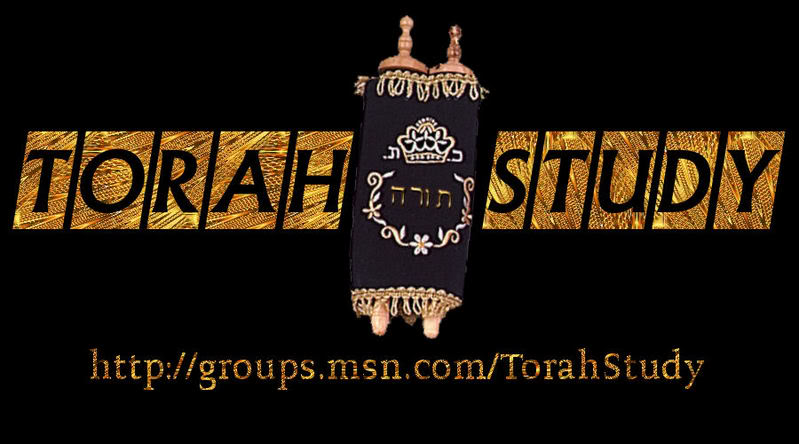Devarim consists chiefly of three discourses said to have been delivered by Moshe a short time before his death, given to the Yisra’elites, in the plains of Moab, in the penultimate month of the final year of their wanderings through the wilderness.
The first discourse (1-4) is a historical recollection of Yisra’el's disobedient refusal to enter the Promised Land, and the resulting forty years of wandering in the wilderness.
The disobedience of Yisra’el is contrasted with the justice of YHVH. YHVH is a judge to Yisra’el, punishing them in the wilderness, and destroying utterly the generation who disobeyed YHVH's commandment. YHVH's wrath is also shown to the surrounding nations, such as King Sihon of Heshbon, whose people were utterly destroyed. In light of YHVH's justice, Moshe urges obedience to divine ordinances, and warns against the danger of forsaking the Elohim of their ancestors.
YHVH's forgiveness and grace towards the young generation of Yisra’elites who are entering the land is a seemingly paradoxical contrast to YHVH's justice. The same Elohim who lovingly gave Yisra’el the promised land, stayed with them in the wilderness as a cloud by day and fire by night. The following laws are also seen as a gift of divine grace.
The second discourse (5-26) is, in effect, the main body of the book, and is composed of two distinct addresses. The first of these (5-11), forms a second introduction, expanding on the Ethical Decalogue given at Har Sinai. The second address (12-26) is the Deuteronomic Code, a series of mitzvot (commands), forming extensive laws, admonitions, and injunctions to the Yisra’elites regarding how they ought to conduct themselves in Canaan, the land promised by YHVH as their permanent home. This code includes such laws as:
The worship of YHVH must remain pure, and be uninfluenced by neighbouring cultures and their 'idolatrous' religious practices. The death penalty is prescribed for following other YHVHs, and for teaching the Yisra’elites to do the same.
The death penalty is also prescribed for males who disobey their parents
Certain Dietary principles are enjoined.
A Tithe for the Levites and charity for the poor
A regular Jubilee Year during which all debts are cancelled
That slavery of an individual lasts no more than 6 years, but only if the individual purchased is "thy brother, an Hebrew man, or an Hebrew woman."
Yahwistic religious festivals, including Pesach, Shavu’ot, and Sukkot are to be part of Yisra’el's worship
The offices of Judge, Melech, Kohen (temple priest), and Prophet
A ban against the planting of trees, dedicated to Asherah, next to altars dedicated to YHVH, and the erection of sacred stones
A ban against children either from being immolated or from passing through fire (the text is ambiguous as to which is meant), divination, sorcery, witchcraft, spellcasting, and necromancy
A ban preventing blemished animals from becoming sacrifices at the Temple
Protection for those accused of manslaughter by the existence of three cities of refuge where they may flee from the avenger of blood.
Exemptions from military service for the newly betrothed, newly married, owners of new houses, planters of new vineyards, and even anyone who is afraid of fighting.
Peace terms before battle - the terms being that they enter slavery
The Amalekites to be utterly destroyed under the ban
A ban on environmental forms of warfare, such as the destruction of fruit trees, the mother of newly-born birds, and beasts of burden which have fallen over, or are lost
Rules which regulate marriage, and Levirate Marriage, and allow divorce.
Purity laws which prohibit the mixing of fabrics, of crops, of beasts of burden under the same yoke, and transvestitism.
The use of Tzitzit
Prohibition against people from Ammon, Moab, or who are of illegitimate birth, and their descendants for ten generations, from entering the assembly of YHVH, as well as imposing this restriction upon those who are castrated (but not their descendants)
Regulations for ritual cleanliness, general hygiene, and the treatment of Tzaarath
A ban on religious prostitution
Regulations for slavery, servitude, vows, debt, usury, and permissible objects for securing loans
Prohibition against wives making a groin attack on their husband's adversary.
The concluding third discourse (27-30) is hortatory, relating almost wholly to the solemn sanctions of the law, the blessings to the obedient, and the curse that would fall on the rebellious. In this discourse, the Yisra’elites are solemnly adjured to adhere faithfully to the covenant between them and YHVH, and so secure for themselves, and for their posterity, the promised blessings.
After the final discourse, the text describes Moshe preparing himself to die. As the main part of preparation, Moshe is described as conditionally renewing the covenant between YHVH and the Yisra’elites, the condition being the loyalty of the people, and at the same time, Y’hoshua is also appointed by Moshe as heir, a leader to lead the people into Canaan.
These addresses to the people are followed by what are generally regarded as three short appendices, namely:
The Song of Moshe, which the text states was created by Moshe upon the request of YHVH (Devarim 32:1-47).
The Blessing of Moshe, which is pronounced upon the individual tribes of Yisra’el (33)
The story of the death of Moshe (Devarim 32:48-52), and subsequent burial (34).
skip to main |
skip to sidebar
Meet the Moreh
Facebook Badge
Tags
- 1 Samuel (2)
- Acts (10)
- Amos (2)
- B'midbar (6)
- B'reisheet (33)
- B'reisheet parsha (6)
- Balak (6)
- Beshalach (6)
- Bo (6)
- calf (1)
- Chayei Sarah (6)
- Chukat (6)
- commentary (1)
- Devarim (14)
- Ekev (6)
- English (5)
- Ester (2)
- Esther (2)
- Gospel (68)
- Haftarah (71)
- Haman (2)
- Hebrew (105)
- Hoshea (4)
- Isaiah (4)
- Judgments (1)
- Ki Tisa (6)
- Korach (3)
- Lech Lecha (6)
- Lot (2)
- Lots (2)
- Mal'aki (2)
- Malachi (2)
- Mark (22)
- Massei (6)
- Matthew (15)
- Mattithyahu (26)
- Mattot (6)
- Melachim Alef (14)
- Melachim Bet (2)
- Micah (2)
- Miketz (6)
- Mishpatim (6)
- Mordecai (2)
- Mordekhai (2)
- names (1)
- Noach (6)
- Noah (2)
- Ovadyah (1)
- Parsha (172)
- Pekudei (3)
- Pinchas (6)
- Pur (2)
- Purim (2)
- Re'eh (7)
- rebellion (1)
- Sar Shalom (2)
- Scripture (124)
- Shemot (32)
- Shmu'el Alef (2)
- Shoftim (3)
- Summary (2)
- Terumah (6)
- Tetzaveh (6)
- Toldot (6)
- Torah (178)
- Va'era (8)
- Va'etchanan (7)
- Vayak'hel (6)
- Vayechi (6)
- Vayera (6)
- Vayeshev (6)
- Vayetze (6)
- Vayigash (6)
- Vayishlach (6)
- Vezot HaBrachah (6)
- Yechezkel (6)
- Yehoshua (2)
- Yeshayahu (23)
- YirmeYahu (6)
- Yitro (6)
- Yochanan (10)



